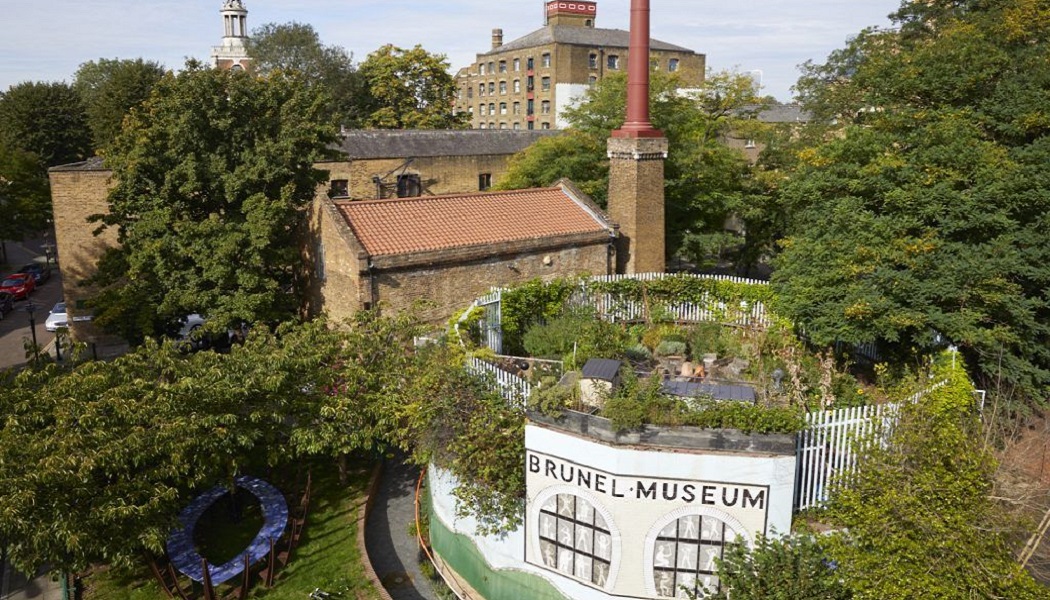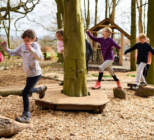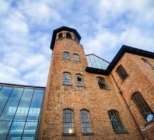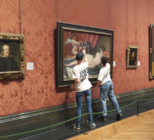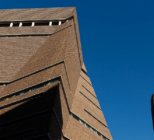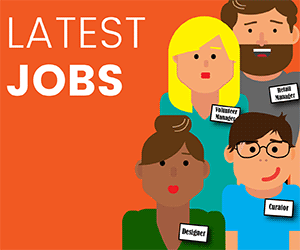Despite being a small team – the museum employs just one full-time member of staff – and already making strides which include using renewable energy onsite and achieving a 74% recycling rate, the organisation has drawn up a plan which zeroes in on four key areas of improvement.
The quartet of priorities are: decarbonising the museum; working with existing and new partners to ensure their values and priorities are aligned; using the museum’s platform to improve awareness both of the climate emergency and what the solutions are; and maximising positive impacts of the Brunel Museum Reinvented project.
“It feels like there isn’t a better time for us to stand up publicly and share the work we’ve been doing behind the scenes to tackle and reverse the worst effects of the climate emergency,” says Katherine McAlpine, director of the Brunel Museum.
Podcast: Becoming director of the Brunel Museum during a global pandemic
“We’re proud of what we have achieved already but we recognise there is always more we can do. Climate consciousness is probably higher than it’s ever been, and now is the time to start using an engineering mindset to help people imagine a better future and find the solutions to get there – just like the Brunels did when they built the Thames Tunnel.”
Brunel Museum Sustainability Statement
We celebrate the work of the Brunel family and how it changed the world. We also recognise the legacy of the Industrial Revolution on the planet’s ability to sustain itself. As we now see and experience the damaging impact of this legacy, we are forced to change how we produce and consume energy and our relationship with the natural world.
We are a small museum, but we have big aspirations. We have already made changes to how we operate to become more sustainable. We are continuing to investigate ways to further minimise our impact and make the best choices that contribute to the global transition to a net-zero carbon society.
We aspire to bring sustainable development to all museum activities but to achieve this we are prioritising four areas which are aligned with our values, expertise and opportunities to influence change.
Decarbonising the museum
All our energy is now supplied by a renewable energy supplier and we are no longer using a gas on site. We also encourage staff and volunteers to reduce consumption both at home and at the Museum.
We will continue to decarbonise the museum in all aspects of operations and management in order to meet our aim of becoming a carbon neutral museum.
Working with others
We are committed to align our values with the companies and organisations with whom we partner and in so doing influence change and magnifying the museum’s impact. Our recycling rate at the Museum is 74%, and we will continue to improve upon this. Our pension provider does not invest in fossil fuels and is considered by ShareAction one of the most ethical pension providers.
We will continue to work with our partners by creating an ethical procurement policy that has sustainability at its heart.
Using our platform
We are committed to engage stakeholders in our values and priorities and provide a platform to educate and inform.
We will use the story of the Thames Tunnel to illustrate how adaptability and perseverance can help overcome the challenge of climate change today.
Developing the site
We are committed to minimise any potential environmental impacts of the Brunel Museum Reinvented Project as well as maximising the potential of using short-term and long-term sustainable resources and activities.
We have elected to build on the south side of the site to protect the mature tress on the north site. We will be planting new trees on the south site, as well as a wildflower meadow to encourage pollinators.
Our ecology study and sustainability review will help us to continue to develop the project sustainably.
We are exploring how we can further enhance the site and project to improve biodiversity and reduce waste.
The Sustainability Statement has been published to coincide with Museum Carbon Stories, a social media campaign developed as part of the Roots and Branches carbon literacy project.

